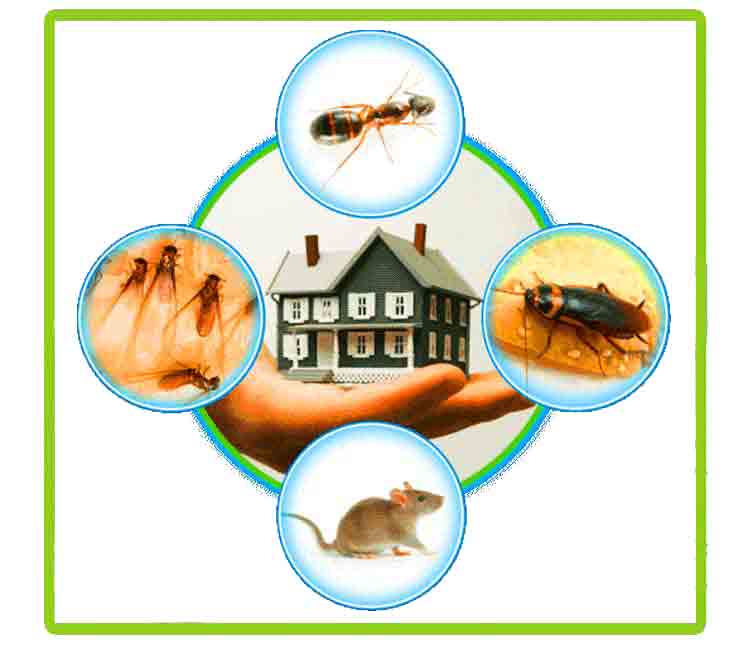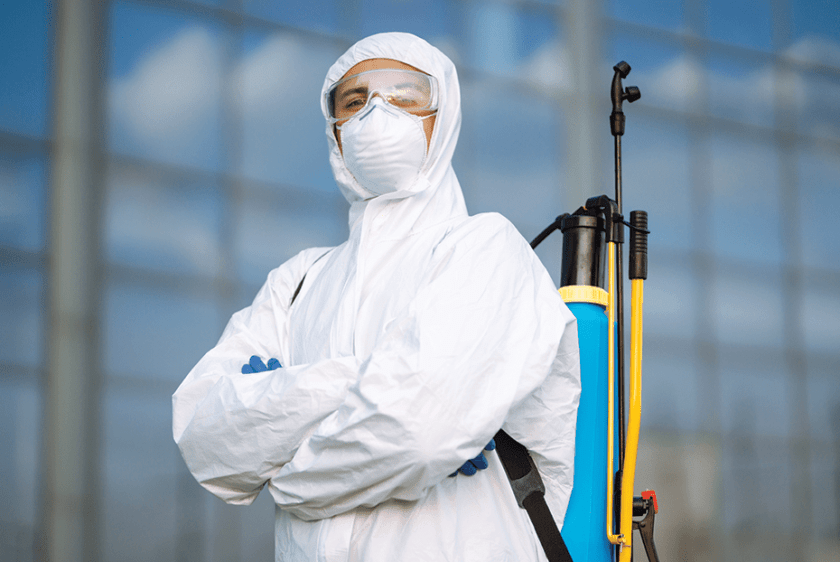Top Coquitlam Pest Control Solutions for a Rodent-Free Home
Safe and Trusted Pest Control for Lasting Protection
Effective parasite administration requires a diverse technique that balances eco-friendly stability with the demand for efficient pest suppression. The nuances of these approaches may not be immediately clear, triggering a closer assessment of the practices that can lead to lasting pest control results.
Understanding Insect Control Techniques
Insect control incorporates a variety of approaches targeted at managing and getting rid of unwanted pests and rodents that can endanger both wellness and building. Understanding these techniques is essential for efficient pest administration.
The key categories of bug control methods include mechanical, organic, and chemical approaches. Mechanical techniques include physical obstacles and traps to avoid parasite entry and capture undesirable varieties. Making use of displays on home windows or employing sticky traps can substantially lower pest populaces without introducing dangerous compounds - exterminator coquitlam.

Chemical parasite control is usually one of the most acknowledged technique, using pesticides to eliminate parasites. These chemicals can be reliable however should be used with care to stay clear of negative impacts on non-target types and the setting.
Advantages of Eco-Friendly Solutions
Exactly how can environmentally friendly remedies change insect control practices? The fostering of environment-friendly insect control approaches uses various advantages, dramatically improving the effectiveness and safety and security of bug management (exterminator coquitlam). To start with, these options utilize all-natural components, reducing the dependence on dangerous chemicals that can posture dangers to human health and the atmosphere. This change not only protects family pets and families however additionally reduces the potential for dirt and water contamination.

Another advantage is the positive influence on neighborhood biodiversity. Eco-friendly solutions are made to target details parasites while maintaining valuable pests and wild animals, advertising a balanced ecosystem. This approach straightens with the expanding consumer demand for lasting methods, improving the credibility of pest control companies.
Integrated Insect Management Strategies
The execution of green options naturally results in the adoption of Integrated Parasite Administration (IPM) techniques, which even more enhance pest control efficiency. IPM is an alternative method that combines numerous techniques to manage parasite populaces while lessening environmental influence. This method emphasizes using organic, cultural, mechanical, and chemical controls, making certain a well balanced and sustainable technique of pest monitoring.
One essential aspect of IPM is the detailed evaluation of pest task and environmental problems. By keeping track of pest populaces and determining their life cycles, practitioners can implement targeted interventions that interfere with the parasite's environment or lifecycle, lowering dependence on chemical pesticides. Furthermore, cultural practices such as crop turning and environment control can considerably decrease pest facility and recreation.
Another important component is using organic control representatives, such as useful pests or microorganisms, which can naturally reduce parasite populations. When chemical applications are required, IPM focuses on the usage of low-risk pesticides and applies them precisely, minimizing exposure to non-target organisms and people.
Including IPM strategies not only boosts parasite control effectiveness however likewise advertises a much safer ecosystem, aligning with the expanding need for sustainable practices in bug monitoring.
Safe Practices for Home Owners
Recognizing the importance of safe practices in pest control can empower property owners to successfully take care of parasite concerns while safeguarding their health and the environment. Implementing non-toxic methods and safety nets is essential in decreasing direct exposure to dangerous chemicals.
Homeowners need to initially evaluate their setting for conditions that draw in insects, such as standing food, water, you can find out more and mess waste. Consistently cleansing and sealing entry factors can discourage insects from getting into the home. Utilizing all-natural deterrents, such as vital oils or diatomaceous earth, can provide reliable choices to chemical pesticides.
When chemical treatments are essential, property owners should choose items that are specifically labeled as risk-free for household usage. It is important to comply with application standards diligently to stay clear of overexposure. In addition, using targeted therapies in locations where insects are determined, instead of blanket spraying, can significantly decrease chemical usage.
Finally, keeping open interaction with insect control experts is essential. House owners need to ask about the safety and security of products used and request environmentally friendly choices whenever possible. By embracing these risk-free techniques, property owners can develop a much healthier living get rid of spiders environment while efficiently handling parasite concerns.

Tips for Long-Term Security
Establishing a pest management strategy that emphasizes long-term defense can greatly boost the performance of the secure techniques formerly gone over. To accomplish this, house owners need to apply routine assessments of their residential property, concentrating on hidden areas such as attics, basements, and crawl rooms. Early discovery of bug task is important in stopping infestations from taking hold.
In addition, preserving a clean environment is essential. This consists of proper food storage, without delay cleaning up spills, and regularly getting rid of trash. These practices reduce attractants that attract bugs into the home. Furthermore, securing entry factors, such as splits around home windows and doors, can properly obstruct potential bug access.
Landscape design should likewise be considered; keeping plants cut and keeping a distance in between plant life and the home reduces concealing places for pests. Using all-natural deterrents, such as important oils or diatomaceous planet, can better discourage invasions without considering rough chemicals.
Lastly, working together with a specialist pest control service for view it regular analyses can provide an extra layer of safety. These specialists can supply tailored recommendations and advanced treatments, guaranteeing that your home stays secured versus parasites in the long-term.
Conclusion
Finally, trusted and secure pest control requires a multifaceted approach that emphasizes environment-friendly techniques and incorporated parasite administration. By implementing all-natural deterrents, performing normal examinations, and maintaining proper hygiene, homeowner can substantially minimize insect populations while protecting advantageous insects and the setting. Cooperation with expert insect control services enhances the performance of these approaches, making sure tailored solutions that give long-term security and peace of mind against future problems.
Reliable insect management calls for a diverse method that stabilizes ecological honesty with the requirement for effective parasite suppression. The adoption of green bug control methods supplies many benefits, dramatically improving the performance and security of pest administration.The implementation of green services normally leads to the adoption of Integrated Insect Monitoring (IPM) techniques, which better boost bug control efficacy. exterminator coquitlam. By keeping track of parasite populations and determining their life cycles, practitioners can apply targeted interventions that disrupt the bug's habitat or lifecycle, reducing dependence on chemical pesticides.In final thought, secure and reliable parasite control requires a complex strategy that highlights environmentally friendly techniques and incorporated bug monitoring